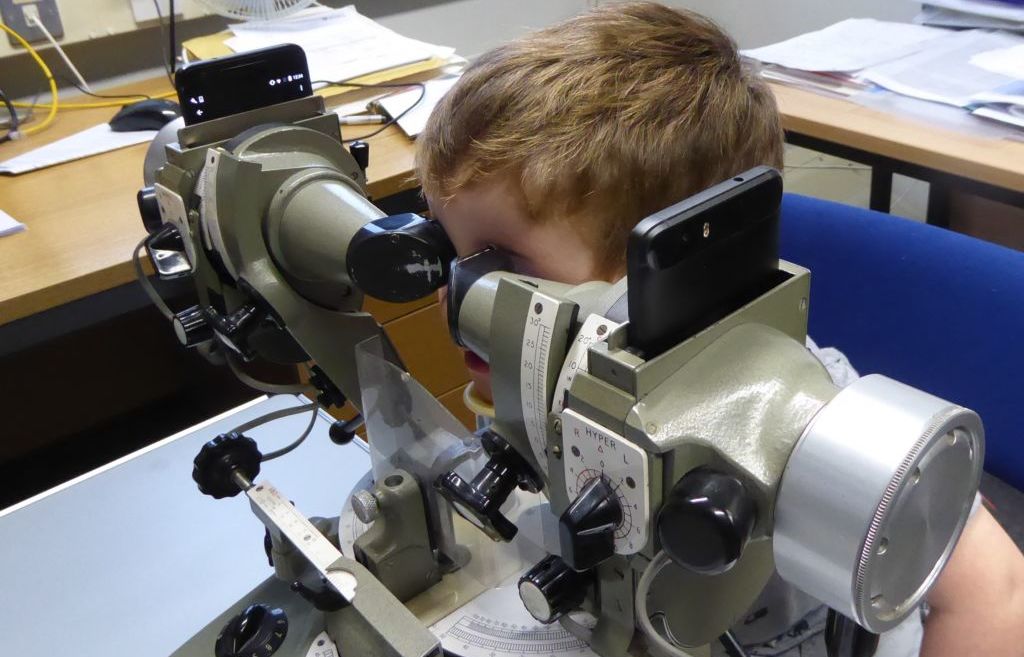Orthoptists regularly see patients with double vision, otherwise known as ‘diplopia’. In fact the investigation, diagnosis and treatment of diplopia is a daily part of the job for a lot of Orthoptists. Research into the common symptoms patients experience is important. Orthoptists need to show, or measure, how symptoms affect patients and their lives, as well as measure the effects treatments are having.
Beckie Lijka recently graduated as an Orthoptist from the University of Sheffield. As part of her final year dissertation she undertook a research project exploring the impact of double vision on reading. Beckie then developed her research project into a paper, which has been recently published in the British and Irish Orthoptic Journal. Beckie’s research shows that when you temporarily give someone double vision (by giving them prism glasses to wear) their reading is much slower and they make more mistakes. However, not all double vision is the same, having closer together double vision caused reading to be much worse than double vision that was further apart.
This evidence suggests that Orthoptists not only need to consider the presence of double vision as a symptom, but how far apart the double vision is. One of the treatments for double vision is to join the two images with prisms. This research also supports the use of prisms to further separate double vision, if the two images cannot be joined.
Beckie’s research article is available for free on the British and Irish Orthoptic Journal website, here.
